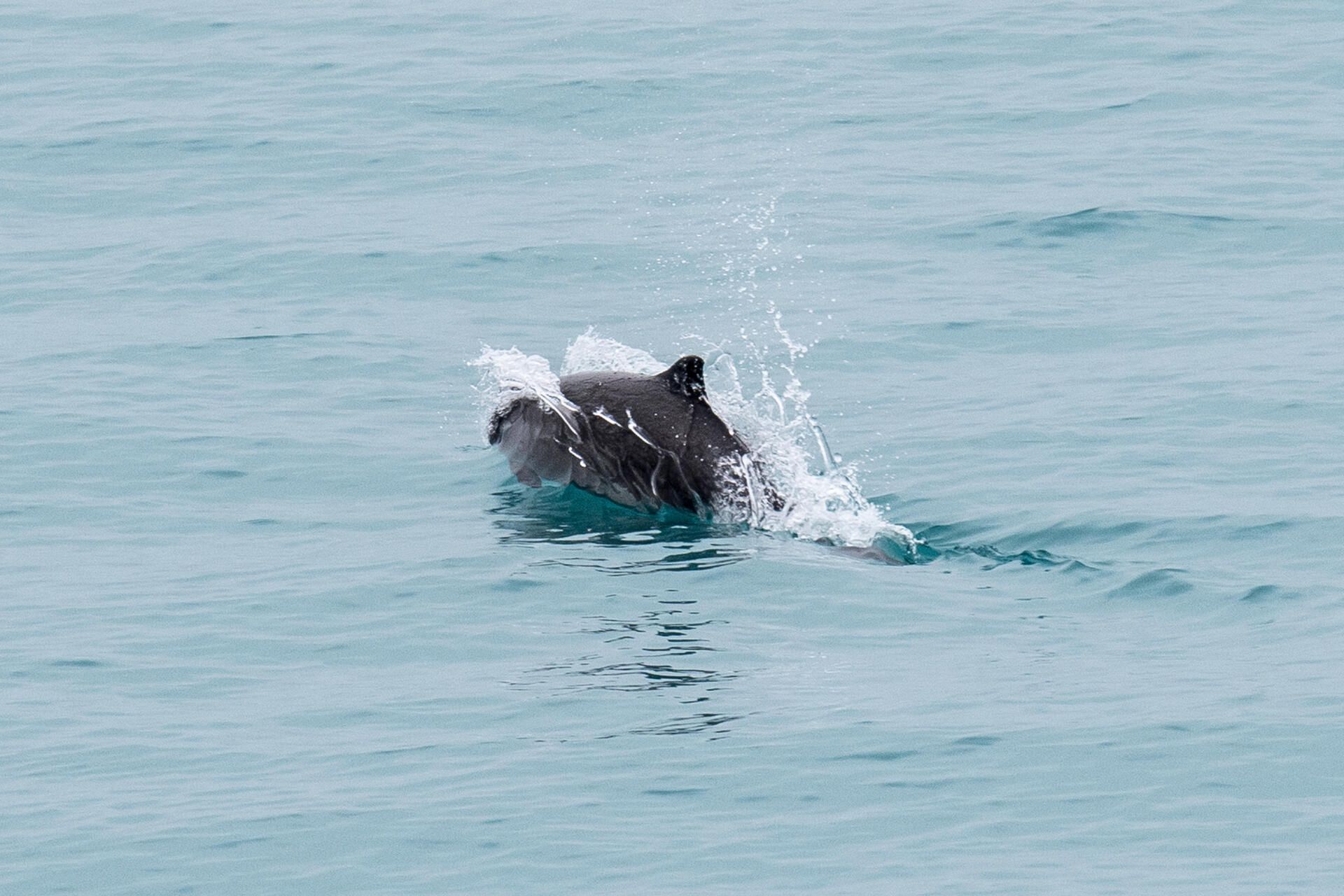+119,000 signatures to save the critically endangered Baltic harbour porpoise
Coalition Clean Baltic (CCB) will hand over the petition to the EU Commissioner Virginijus Sinkevičius calling for concrete and urgent conservation measures to protect the Baltic Proper harbour porpoise – the only whale in the Baltic Sea

Credit: Anthony Pierce / Alamy Stock Photo
Helsinki, 24 November 2022 – Today, Coalition Clean Baltic (CCB) will meet Virginijus Sinkevičius, the EU Commissioner for Environment, Oceans and Fisheries, in Helsinki to handover the petition #SaveTheBalticPorpoise, which collected 119,247 signatures [1] from the citizens of all the countries around the Baltic Sea and many others in Europe and globally.
The petition, started in April this year, calls for the EU Commissioner and all Baltic Ministers to follow scientific advice and work together to:
- Fully protect the harbour porpoise in designated Marine Protected Areas (MPAs);
- Stop harbour porpoise bycatch in the entire Baltic Sea;
- Investigate the possible coexistence of harbour porpoise nature conservation and military underwater activities;
- Increase efforts to develop and implement alternative fishing gear that does not cause harbour porpoise bycatch.
The first measures to mitigate bycatch of Baltic harbour porpoise - with closures of static net fisheries in harbour porpoise MPAs - were put in place in February 2022 [2] thanks also to the efforts of the Baltic Sea Member States and the European Commission, but much more needs to be done for a full protection of this critically endangered cetacean species.
Baltic EU Member States are slow to act and the ambitions set are too low. Scientific advice [3] and legal requirements are available to generate effective conservation and properly address threats affecting the only whale resident in the Baltic Sea.
With only a few hundred individual left, we – along with 119,247 citizens - urge the EU Commission and the Environment, Fisheries and Defense Ministers around the Baltic Sea to pursue dialogue and implement additional measures to save the Baltic Proper harbour porpoise from extinction.
__ END
***
- Read the PR in Swedish.
- Read the PR in Finnish.
Notes
CCB – Coalition Clean Baltic is a politically independent, non-profit association, which unites 26 Member Organizations and 1 Observer, with over 1,000,000 members in all countries around the Baltic Sea. The main goal of CCB is to promote the protection and improvement of the Baltic Sea environment and its natural resources. More info at www.ccb.se.
[1] CCB Petition #SaveTheBalticPorpoise: https://you.wemove.eu/campaigns/save-the-baltic-harbour-porpoise
[2]
- CCB PR
“One step in the right direction to protect the only whale in the Baltic Sea”
- CCB Brief on EU Delegated Act 2022
- EU Delegated Act 2022
[3] ICES Advice on bycatch (2020)
Contact
Nils Höglund, Fisheries Policy Officer, Coalition Clean Baltic:
nils@ccb.se, +46 708 679249 (SE, EN)
Ida Carlén, Senior Policy Advisor Oceans, Swedish Society for Nature Conservation: ida.carlen@naturskyddsforeningen.se, +46 (0) 70 313 30 67 (SE, EN)
Tapani Veistola, Executive Director, Finnish Association for Nature Conservation: tapani.veistola@sll.fi, +358 400 615 530 (FI, EN)
Background
The harbour porpoise (Phocoena phocoena) is a small toothed whale that lives in coastal waters all around the northern hemisphere. In the Baltic region there are three separate populations: the North Sea population in the North Sea, Skagerrak and northern Kattegat, the Belt Sea population in southern Kattegat, the Belt Sea and southwestern Baltic Sea, and the Baltic Proper population in the inner Baltic Sea.
The Baltic Proper harbour porpoise population is classified as Critically Endangered by the International Union for the Conservation of Nature, IUCN. It is genetically and morphometrically different from its closest neighbours in the Belt Sea, showing that the Baltic Proper harbour porpoise is a separate population and should be treated as its own management unit.
There are many threats to harbour porpoises:
- They can get caught and drown in fishing nets, and bycatch is one of the primary reasons there are so few porpoises left in the Baltic Sea today.
- Loud underwater noise from explosions and offshore constructions of, for example windfarms, can make a porpoise deaf, which will eventually lead to its death because a porpoise depends on its echolocation to find food.
- Noise from heavy shipping traffic and fast leisure boats can cause disturbance, altering important behaviours such as feeding, mating or nursing of calves.
- Environmental contaminants and pollutants such as PCB can cause decreased fertility in harbour porpoise females, as well as increased susceptibility to disease and parasites.
- Overfishing and ecosystem changes can make it more difficult for harbour porpoises to find enough prey.
In December 2020, BALTFISH sent this Joint Recommendation to the European Commission, to prevent bycatch of Baltic Proper harbour porpoise in the Baltic Sea fisheries. In September 2021, this Joint Recommendation was also submitted to the European Commission. Both Joint recommendations includes measures only within Natura 2000 areas. The JRs have been transposed into a delegated act which was implemented in February 2022.

